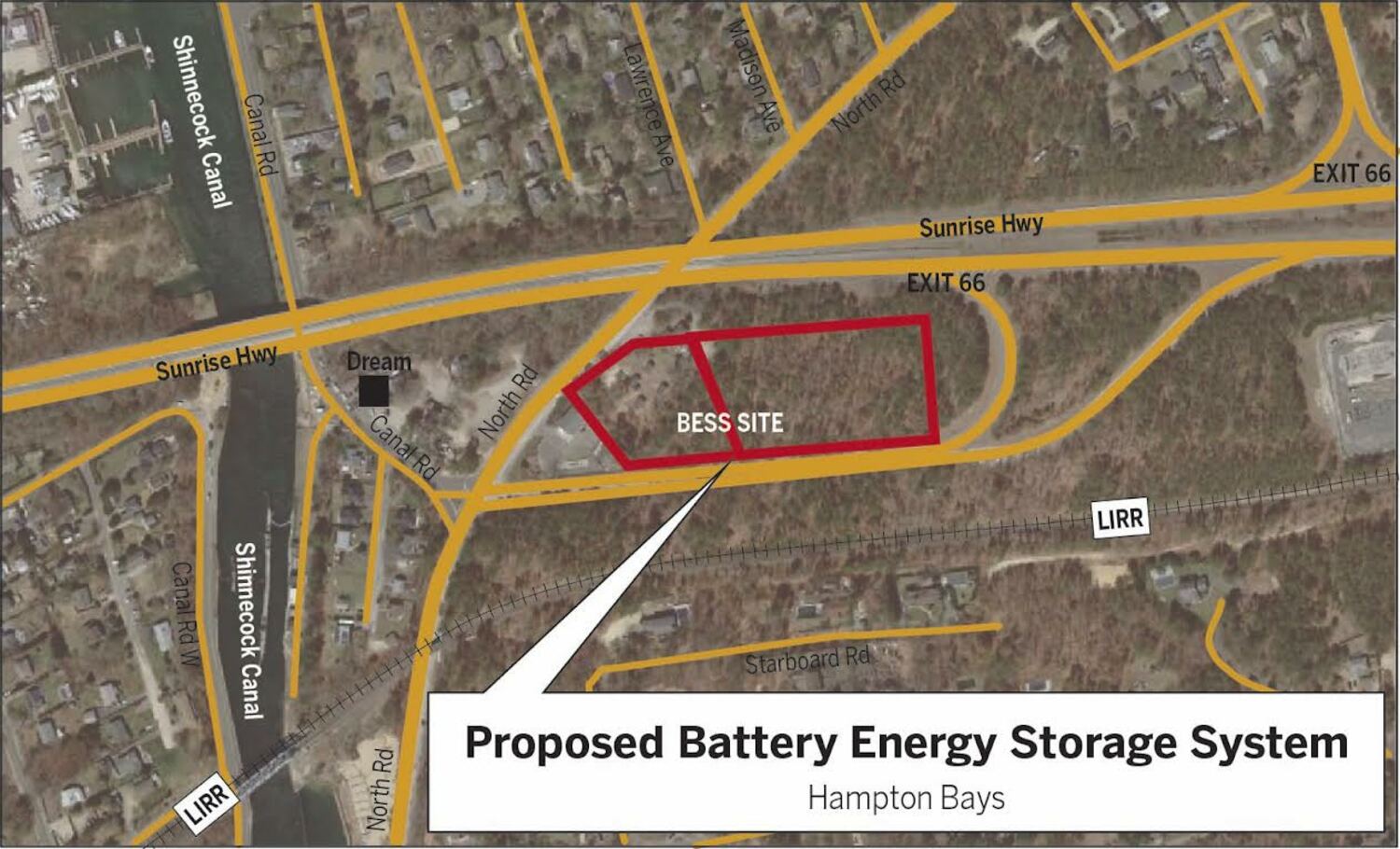
The Southampton Town Board voted at its regular August 22 meeting to implement a six-month moratorium on any applications for battery energy storage facilities following intense public push-back in Hampton Bays to a proposed BESS facility there. The vote was unanimous.
In deference to community members who came out for the vote, Town Supervisor Jay Schneiderman plucked the BESS resolution from a long list of resolutions and moved it near the top of the agenda, as he acknowledged that the community’s fears over their health and safety had been the driver behind the moratorium as he invoked another long list of concerns, raised by residents who live near the proposed site, about toxic gases, diminished water quality, lots of noise, runaway fires and possible explosions.
The town updated its zoning code in 2020 to accommodate facilities such as the proposed BESS plant in Hampton Bays as it set out to do its part to develop infrastructure and policies with an eye toward greater reliance on renewable energy sources like wind and solar, over fossil fuels. The BESS facilities provide a critical link between renewables and the electric grid and, by extension, a critical link to the town’s stated climate goals. In March, the town launched an ambitious Climate Action Plan following its adoption of the Sustainability 400+ plan in 2013, and its “recommitment to carbon neutrality in 2018.”
New York State has set a goal of reducing statewide carbon emissions 85 percent by 2050.
Schneiderman said the town couldn’t abandon that mandate — “We need to move to wind and solar and we have to store it somewhere, but at what capacity and scale?” — but might have to take another swing at zoning changes to address a local learning curve about risks associated with BESS facilities that extend to Albany and Governor Kathy Hochul, who recently formed a task force to study safety issues at BESS facilities after three fires this year at BESS plants in the state, including one in East Hampton.
The moratorium puts the brakes on Canal Southampton Battery Storage LLC’s efforts to build a battery energy storage unit system with 30 battery enclosures containing 24 battery modules each on a nearly 5-acre parcel off North Road.
Schneiderman said the most compelling issue raised during the rolling BESS mess that unfolded at Town Hall this year was the facility’s proposed location at a transportation chokepoint where Sunrise Highway, Montauk Highway and the Long Island Railroad track all come together “in a short, maybe half-mile area.”
If something “catastrophic” did occur that would force the closure of those three arteries, well, that would represent a big problem and “something that really has to be evaluated,” said Schneiderman, noting that East Hampton Town “came close” to calling for the evacuation of residents within a mile radius of the BESS facility there when it caught fire earlier this year.
The six-month pause, said Schneiderman, would give the town time to gather unbiased expertise and to examine town code to try to “figure out where these belong and under what conditions,” and with an eye toward possible zoning updates.
“Ultimately, I won’t be sitting in this chair when the final zoning changes are made, if any, but it will be based on what is learned,” said Schneiderman, who will be prevented from seeking reelection this fall due to term limits.
Republican councilwoman Cyndi McNamara, who is running for Schneiderman’s seat in November offered a collegiate nod in the direction of Schneiderman when she noted, “I’m sure you all will be here and be a part of this process,” to scattered chuckles from the room.